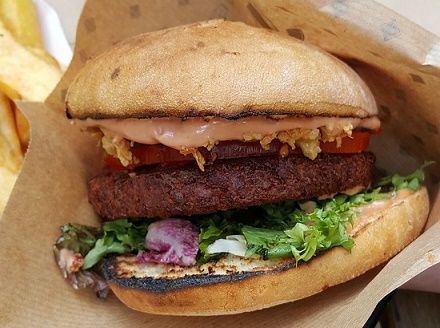Consumers appear to be responsive to the idea of eating more vegetables and vegetable-based food – even when it comes to takeaways and restaurant food.
Climate scientists have long had meat production in their sights as one of the biggest culprits behind the acceleration in global warming and beef is one of the most problematic foods when it comes to its CO2 footprint during production.
More readily available
It is also becoming easier to find meat-free products in supermarkets and other outlets. Burger chain Halifax has ten outlets and over the last year sales of its vegetarian burgers have tripled, reports Politiken.
More than every tenth burger that the chain sells is meatless and often also made without dairy products, according to Ulrich Dehler, the administrative director of Halifax.
“In the ten years that we’ve existed we’ve had two vegetarian alternatives to beef burgers, but sales have always been around 1-2 percent,” said Dehler. “After 2015 sales grew a little, but this year they’ve made a giant leap to 11 percent of our total.”
READ ALSO: Danes buying more vegetarian substitutes for meat and dairy
Six months ago McDonalds launched its first vegetarian burger and is about to market another one.
“When we launch a burger like this it’s because there is a demand from our customers – not just in Copenhagen but all over the country. It has become mainstream to want a burger without meat,” said McDonald’s commercial director, Mads Friis.
The same trend has been noticed at Denmark’s 7-Eleven kiosks and the chain now carries more than 60 items that vegetarians or vegans can buy.
“After we developed our vegetarian alternatives, 15-20 percent of our sales have moved over to these lines. Not only because consumers are buying something different but also because of new customers we’ve not been very good at attracting before,” 7-Eleven’s commercial director, Morten Vedel, told Politiken.
A welcome shift in the air
Public opinion does seem to be changing. An opinion poll carried out by Epinion earlier this year showed 55 percent of consumers deliberately don’t eat meat at least once a week. Additionally, 15 percent said they planned to eat less meat in 2018 than they did in 2017.
At the moment, it is primarily young people who seem to be driving a trend that fits in well with general concerns about animal welfare, health issues and climate.
Ulrich Dehler from Halifax admits he didn’t expect to be focusing so heavily on vegetarian burgers when he started the chain ten years ago.
“Back then the idea that beef was problematic was not on the agenda. But now we would rather contribute to creating a shift that is important for the earth’s climate rather than standing in the way of it,” said Dehler.















